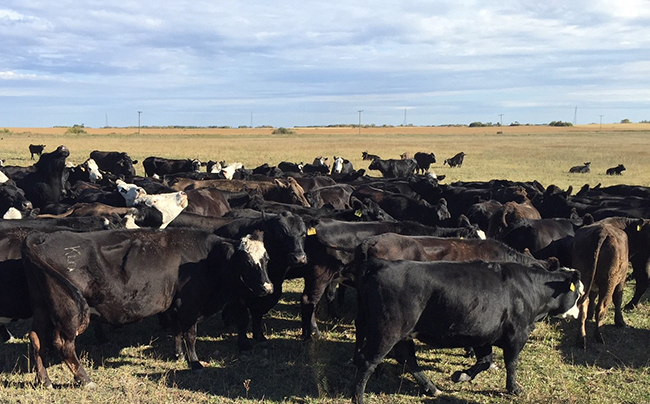Urban cattle auction mart shuts down after decades in operation

Heartland Livestock Services was once the ‘crown jewel of the marketing system in Manitoba’ says Livestock Association
Manitoba’s last urban cattle auction mart closed its gates this summer, marking the end of an era for Brandon’s cattle community.
Heartland Livestock Services, which operated the stockyards just north of the city’s downtown, said in a statement posted online that it “made the difficult decision to close the Brandon location” in July.
David Nilsson, Heartland’s chief operating officer, declined an interview with CBC.
At its height, 100,000 head of cattle came through the yard, but that number has dwindled to around 25,000, said Rick Wright, the CEO of the Livestock Markets Association of Canada.
“It wasn’t that many years ago, and it was the crown jewel of the marketing system in Manitoba,” said Wright.
“It’s unfortunate that … it has to close, but you know, it would be a business decision.”
The closure of the Brandon auction mart underscores a broader crisis facing the livestock industry, says Livestock Markets Association of Canada CEO Rick Wright. (Chelsea Kemp/CBC)
Its close proximity to downtown made it unique and prime real estate, says Wright, who had managed the stockyards in the past. It was also complicated compared to more rural marts, as Heartland needed to work with city bylaws and traffic.
The closure of the Brandon auction mart underscores a broader crisis facing the livestock industry, amid dwindling herd numbers and fewer producers across Western Canada, he said. The number of cattle in Canada has reached its lowest levels since 1989, according to a 2024 report from Statistics Canada, even as cattle prices hit record highs.
The shutdown reflects a deeper structural shift in agriculture where consolidation of herds, unpredictable costs and aging producers are reshaping how cattle are raised and sold, he said.
That means auction marts are fighting for customers.
Moving markets could cost producers
Wright frequented Brandon’s Tuesday sales regularly and now, like many other producers, he’ll need to find a new market. He says that change of location could cost some producers.
“The further you truck them, the more the cattle shrink. And we sell pounds,” Wright said. “Shrinkage is less pounds to sell. That means less dollars in the producer’s pocket.”
Matthew Atkinson, who farms north of Neepawa and is president of Manitoba Beef Producers, grew up attending the market with his dad and later hauled countless cattle through its sales barns.
“The decision not to relocate the market reflects the wider state of the industry: there are fewer cattle, high transport costs and shrinking margins for producers,” he said. “Whether you’re hauling yourself or custom hauling, it’s expensive to move those cattle.”
“We want to have a long-term relationship with the buyers in the auction mart, as well as minimize our costs and get those cattle to those locations.”
Heartland Livestock Services runs a market in Virden, Man., and others in Saskatchewan. There are other markets still in operation near Brandon including in Gladstone, Ste. Rose, Melita and Killarney, but none are as central in Westman, Atkinson said.
Economic impact
Atkinson says Brandon’s mart stood out as a rare rural holdout in an urban setting, offering a link between ranchers and city life that’s becoming increasingly rare.
“It’s inevitable that, you know, an auction mart in the middle of Brandon … couldn’t remain doing what it was doing in the same location forever,” Atkinson said. “But it is sad to see it closed.”
The trucks and trailers that visited the auction mart will now have fewer reasons to come into the city, and business will feel that economic loss, he said.
The decision not to relocate the market reflects the wider state of the industry, with fewer cattle, high transport costs and shrinking margins for producers, says Matthew Atkinson, a farmer and president of Manitoba Beef Producers. (Chelsea Kemp/CBC)
Jennifer Ludwig, president of the Brandon Chamber of Commerce, says seeing a business closure is a loss, and the chamber wants to learn from it. That includes looking at how the city is supporting agricultural-based businesses, she said.
“What could we do to maybe … solve some of the problems, so that if this opportunity ever brought itself to the forefront again, we would be ready,” Ludwig said.
“Brandon is a hub for our surrounding agricultural towns, and so we are always working side by side.”
The Livestock Markets Association’s Wright remembers when the stockyards burned down in the early 1980s, and were closed for around two years. The economic impacts were immediate, he said.
He thinks that loss will be felt again now.
“They’re going to miss having the rural traffic coming in to the sales, and to the events that were held at the market,” Wright said.














